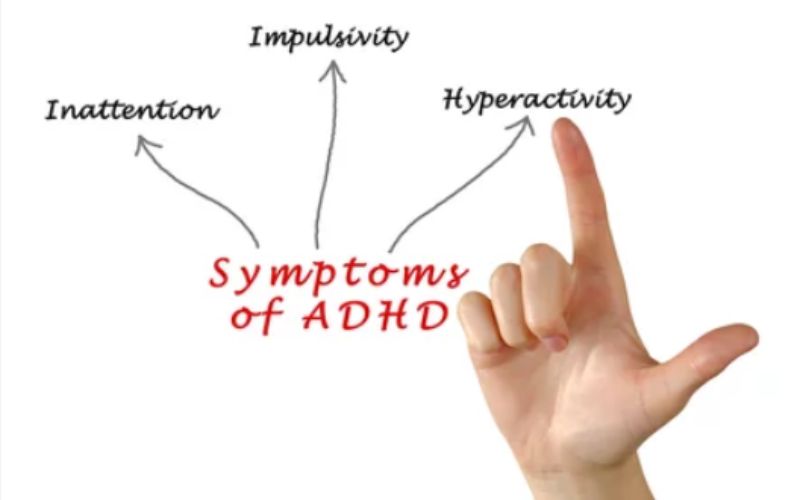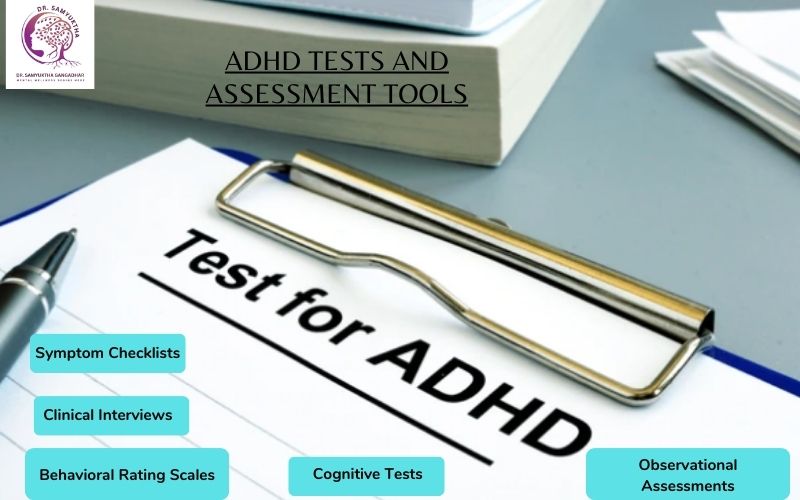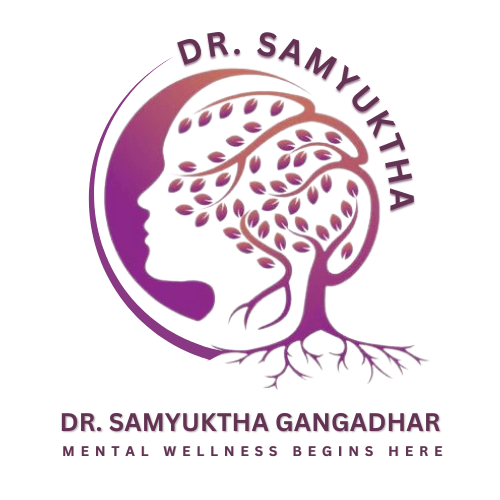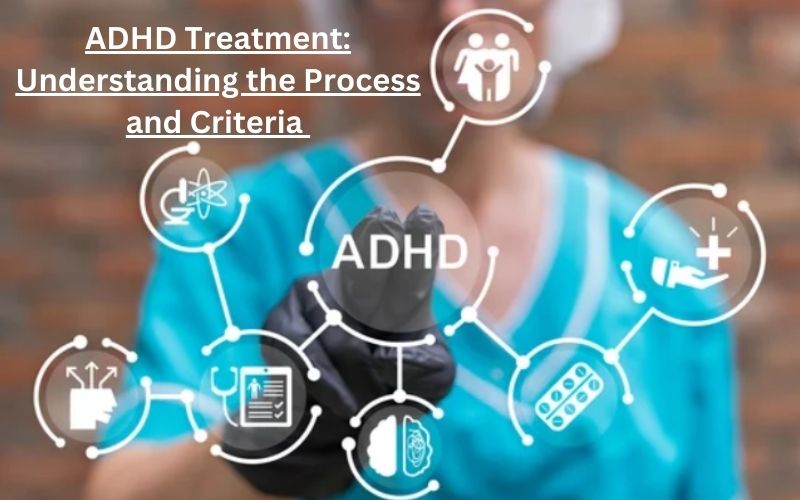Introduction
ADHD (Attention-Deficit/Hyperactivity Disorder) is a neurodevelopmental disorder that affects individuals’ ability to sustain attention, control impulses, and regulate behavior. It often begins in childhood and can persist into adulthood, significantly impacting daily functioning at home, school, or work. Dr. Samyuktha Gangadhar, M.D., with expertise in psychiatry, specializes in diagnosing and offering personalized ADHD treatment to patients in Bangalore and Kolkata, ensuring effective management of symptoms.
Understanding ADHD Symptoms

ADHD presents with a range of symptoms categorized into three main types:
- Inattentive Type: Individuals with this type struggle with maintaining focus, organizing tasks, and following instructions. They may appear forgetful or easily distracted.
- Hyperactive-Impulsive Type: People with this type often display excessive restlessness, talkativeness, and difficulty waiting their turn. They may interrupt others and have trouble sitting still.
- Combined Type: Some individuals exhibit symptoms from both the inattentive and hyperactive-impulsive types, which can vary in severity and impact daily functioning.
These symptoms can change over time and vary in intensity, making ongoing assessment and personalized treatment crucial. Effective management involves tailored approaches that address individual needs to improve attention, behavior control, and overall quality of life.
The ADHD Diagnostic Process

Accurate diagnosis of ADHD involves a thorough evaluation conducted by Dr. Gangadhar. This process typically includes:
- Clinical Interviews: Gathering detailed information about the patient’s medical history, developmental milestones, and current symptoms.
- Observation: Assessing behavior in various settings, such as home and school, to understand how symptoms manifest in different environments.
- Information Gathering: Obtaining input from caregivers, teachers, or other relevant individuals to gain a comprehensive view of the patient’s behavior.
Dr. Gangadhar ensures that all criteria outlined in the DSM-5 (Diagnostic and Statistical Manual of Mental Disorders, Fifth Edition) are meticulously considered to confirm an ADHD diagnosis.
ADHD Diagnostic Criteria
According to the DSM-5, specific criteria must be met for an ADHD diagnosis. These criteria include:
- Presence of symptoms of inattention and/or hyperactivity-impulsivity that interfere with functioning or development.
- Symptoms present in two or more settings (e.g., home, school, work).
- Conclusive evidence that symptoms disrupt or impair social, academic, or occupational performance.
Dr. Gangadhar employs validated assessment tools and clinical judgment to accurately diagnose ADHD and differentiate it from other conditions that may present similar symptoms.
ADHD Tests and Assessment Tools

Diagnosing ADHD involves using various tests and assessment tools to gather information about symptoms, behaviors, and their impact on daily life. Some commonly used tools include:
- Behavioral Rating Scales: These are questionnaires completed by parents, teachers, or caregivers to assess the frequency and severity of ADHD symptoms. They provide valuable insights into behavior patterns across different settings.
- Cognitive Tests: These assessments evaluate cognitive functions such as attention, memory, and executive functioning. They help identify specific cognitive strengths and weaknesses associated with ADHD.
- Symptom Checklists: Structured checklists that clinicians use to systematically evaluate ADHD symptoms based on criteria from the Diagnostic and Statistical Manual of Mental Disorders (DSM-5). They ensure a standardized approach to diagnosis.
- Clinical Interviews: In-depth discussions with patients and their families to gather comprehensive information about medical history, developmental milestones, and current symptoms. These interviews provide context to symptom presentation and help rule out other potential causes.
- Observational Assessments: Direct observation of the individual’s behavior in different settings, such as home or school, to assess how symptoms manifest in real-world environments.
ADHD tests and assessment tools play a critical role in the diagnostic process, guiding clinicians like Dr. Samyuktha Gangadhar in making informed decisions about treatment strategies. These tools ensure a thorough evaluation of ADHD symptoms and help tailor interventions to meet each patient’s unique needs.
ADHD Treatment
ADHD treatment aims to manage symptoms effectively, improve daily functioning, and enhance overall quality of life for individuals diagnosed with Attention-Deficit/Hyperactivity Disorder (ADHD). Treatment strategies often include a blend of:
- Medication: Stimulant medications (e.g., methylphenidate, amphetamines) and non-stimulant medications (e.g., atomoxetine, guanfacine) are commonly prescribed to reduce symptoms of inattention, hyperactivity, and impulsivity. Medications work by altering brain chemicals to improve focus, attention span, and self-control.
- Behavioral Therapy: Cognitive Behavioral Therapy (CBT) and behavioral interventions are essential components of ADHD treatment. These therapies help individuals develop coping strategies, improve organizational skills, manage impulsivity, and enhance problem-solving abilities. Behavioral therapy is particularly beneficial in teaching adaptive behaviors and reducing disruptive behaviors at home, school, and work.
- Parent Training and Education: Educating parents about ADHD and effective parenting strategies is crucial. Parent training programs provide guidance on setting up routines, implementing behavioral strategies, managing behavior effectively, and supporting children with ADHD in academic and social settings.
- School Support: Collaboration with teachers and school personnel is essential to create a supportive learning environment. Accommodations such as modified assignments, extended time for tests, and structured routines can help students with ADHD succeed academically.
- Lifestyle Modifications: Encouraging healthy lifestyle habits such as regular exercise, balanced nutrition, adequate sleep, and minimizing screen time can complement ADHD treatment. These lifestyle modifications support overall well-being and can improve symptoms of ADHD.
Individualized treatment plans are tailored to meet the specific needs and preferences of each patient, considering factors such as age, symptom severity, co-existing conditions, and response to treatment. Regular monitoring and adjustments to the treatment plan ensure optimal outcomes and ongoing support for individuals living with ADHD.
Multidisciplinary Support and Management
Managing ADHD effectively requires a coordinated approach across different areas:
- Educational Support: Dr. Samyuktha Gangadhar collaborates with educators to implement academic accommodations, ensuring students with ADHD receive personalized support for learning challenges.
- Psychological Support: Referrals to psychologists for behavioral interventions and cognitive-behavioral therapy (CBT) help individuals improve focus, impulse control, and emotional well-being.
- Community Resources: Access to support groups and advocacy organizations provides patients and families with valuable peer support, educational resources, and empowerment to navigate ADHD-related challenges.
Dr. Gangadhar’s holistic approach ensures comprehensive care that addresses the educational, psychological, and community needs of individuals with ADHD.
Conclusion
Living with ADHD presents challenges that can impact daily functioning and overall well-being. However, with early diagnosis and effective treatment strategies provided by Dr. Samyuktha Gangadhar at Pushpa Mindcare in Kolkata, patients can experience significant improvement in symptom management and quality of life. For expert ADHD treatment and compassionate care, contact Pushpa Mindcare to schedule a consultation with Dr. Gangadhar.

